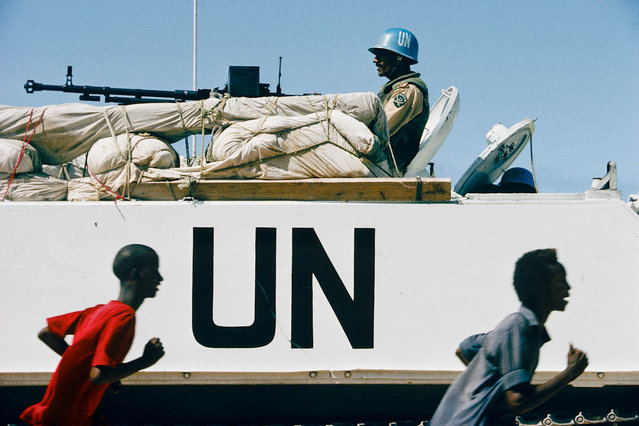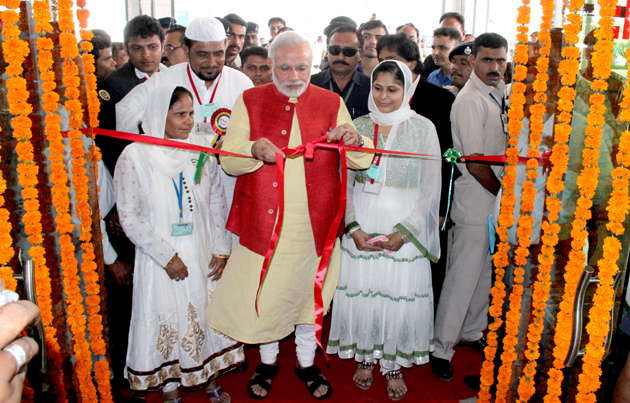As the international security theatre changes, how the international community responds to these emerging trends will also change. New threats and changing paradigms of international security are extremely important to consider when looking at the future of R2P, as we mark the 15th anniversary since the International Commission on Intervention and State Sovereignty gave birth to this emerging norm in 2001.
I had a chance to meet with Tina J. Park, the Co-Founder and Executive Director of the Canadian Centre for R2P and lecturer at the University of Toronto, to discuss how these emerging trends in the international security theatre can affect R2P, as well as the future direction of R2P.

The Canadian Centre for R2P is a non-partisan and non-profit independent research institute based at the Munk School of Global Affairs, University of Toronto, which currently has over 300 analysts across Canada and over 200 Senior Fellows and Junior Fellows in the R2P Scholars Network across the globe.
Park is an enthusiastic advocate of international human rights issues. In the fall of 2012, she advised the Inter-Parliamentary Union (IPU) at the 127th Assembly in Quebec City with Dr. Edward Luck, the former UN Secretary-General’s Representative on R2P. Park continued to advise the IPU at the 128th Assembly in Quito, Ecuador, in the spring of 2013 for its adoption of R2P Resolution on the role of parliamentarians in enforcing R2P. Since 2013, she has contributed to UN Secretary-General Ban Ki-Moon’s report on Responsibility to Protect every year and has participated in the annual UN General Assembly’s Interactive Dialogue on R2P. Most recently, Park addressed the UN General Assembly at their annual informal dialogue on R2P in September 2015 and called for the international community’s active engagement in the Syrian crisis which can be found here.
Park has emphasized the need for decisive and timely implementation of our collective responsibility to protect as we witness on-going crises around the world. She has spoken at the Council on Foreign Relations in Washington D.C. on the role of the private sector in implementing R2P, the Nexus Convening on Mass-Atrocities in Istanbul on the engagement of parliamentarians for implementing R2P, and the Diplocat conference in Barcelona on the role of the European Union in promoting R2P, to name a few. In the summer of 2014, Park served as the expert advisor for the Liberal Party of Canada’s humanitarian policy on Canadian foreign policy in Syria, South Sudan and the Democratic Republic of Congo. Park is a prolific writer and commentator on R2P issues in the media, and recently co-authored a book chapter on the role of the private sector in implementing R2P, which will be published by the Cambridge University Press in the summer of 2016.
In our discussion about the changing trends in international security, Park pointed out some important issues in our contemporary world, specifically the rise of non-state actors and the impact of advancement in technology. We have an unprecedented degree of capacity to identify and share intelligence, to disseminate information, and, for certain groups, to recruit people for their targeted causes. Often, these new potentials also bring new threats. For example, social media has exponentially multiplied the power to broadcast to anyone with a computer or a mobile phone; but great technological tools in the hands of extremist groups or rogue states can be extremely dangerous.
How does Park see R2P evolving with these changes? In crises and conflicts like those in Syria, South Sudan, CAR, Iraq, Park notes that the international community has seen great challenges in responding to these situations. We know that there are serious security and human rights violations that breach the tenets of international law, but our ideals in terms of protecting people are not followed with decisive action and response. In addition to geostrategic interests, there are serious limitations in terms of institutional limitations surrounding the UN Security Council, political will by national actors, limited financial resources, and the central challenge of leadership in coordinating humanitarian efforts. Our pressing problem is not so much the lack of early warning, but of timely and decisive response.
In our discussion about the possibility of turning R2P into policy or something more concrete in international law, Park made it clear that most of the crimes covered under R2P are already embedded in international law. In her words, “the biggest potential for R2P lies with mobilizing political will.” There are some encouraging signs in terms of operationalizing R2P. The UK Parliament released a report called “Mainstreaming R2P” which can be found here. The European Union is an active member and partner in the R2P Focal Points Network, while the IPU Assembly, of which Park was a part, has reached a consensus on the role of parliamentarians in the implementation of R2P which can be found here.
Consistency in applying R2P is also important for the future of this emerging norm, Park explains. Since its founding, the UN has enlarged so much that keeping track of what different UN agencies are doing, and coordinating humanitarian efforts remains a critical challenge. The UN Secretary General Ban Ki-Moon attempted to tackle this problem with his “Rights Up Front” approach; however, calling for change in a system as large as the UN can be an extremely difficult task. The UN is now at a crossroads to reassess its key mandates and to coordinate its efforts in order to be efficient in achieving its end goal of peace and security. R2P was one of the key priorities for Ban, and whether his successor will share such perspective remains to be seen.
In addition to consistent and decisive implementation, Park outlined six specific “measures” to further engage the international community on R2P . First, individual states must embrace R2P domestically. Second, there must be a strong partnership between groups outside of government and parliamentarians in government in order “to widen and deepen public support for R2P.” Third, prevention should always be a priority. Fourth, more states need to ratify the Rome Statute in order to bolster participation in the International Criminal Court’s (ICC) proceedings. Fifth, we must strive for consistent implementation. Sixth, and most importantly, deployable capacity must be built in political, financial, technical, humanitarian, and if necessary, military spheres.
As Park explains, R2P is a “powerful paradigm” that can unite the international community’s efforts in order to choose “hope over cynicism in our struggle against hate, indifference and mass atrocities.” Park argues that there is so much that Canada can do for the future of R2P. Prime Minister Justin Trudeau has sent a clear message that “Canada is back” on the world stage. Already, Canada’s approach towards the Syrian refugees is generating a lot of buzz and the new era of optimism is a welcome change as we envision the future of this emerging norm. The time is ripe for Canada to reassert its leadership on R2P by appointing a senior level civil servant to coordinate R2P-related coordination efforts, by working closely with the global Friends of R2P Group and by developing concrete policy measures for the political implementation of R2P. With our track record of success in global humanitarianism, it is time for Canada to re-claim our intellectual legacy and serve as a champion for R2P.




